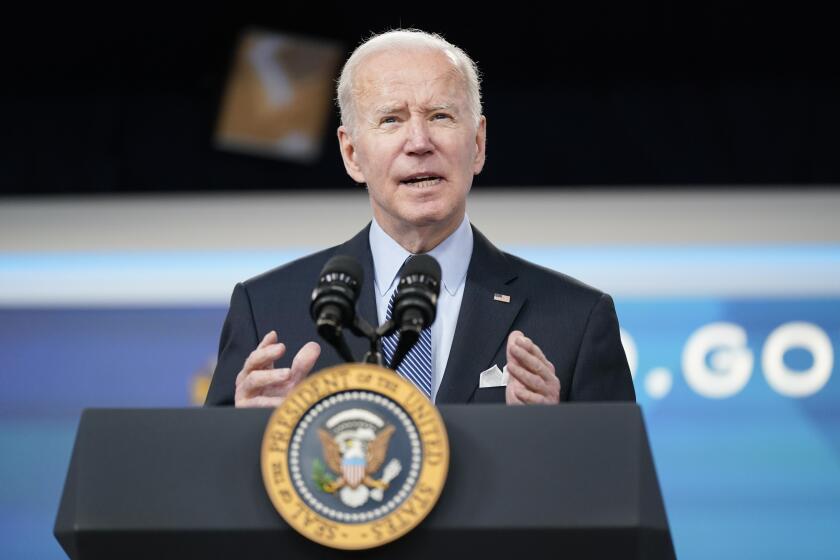Undiplomat: Ukrainian envoy makes German leaders uncomfortable about relations with Russia
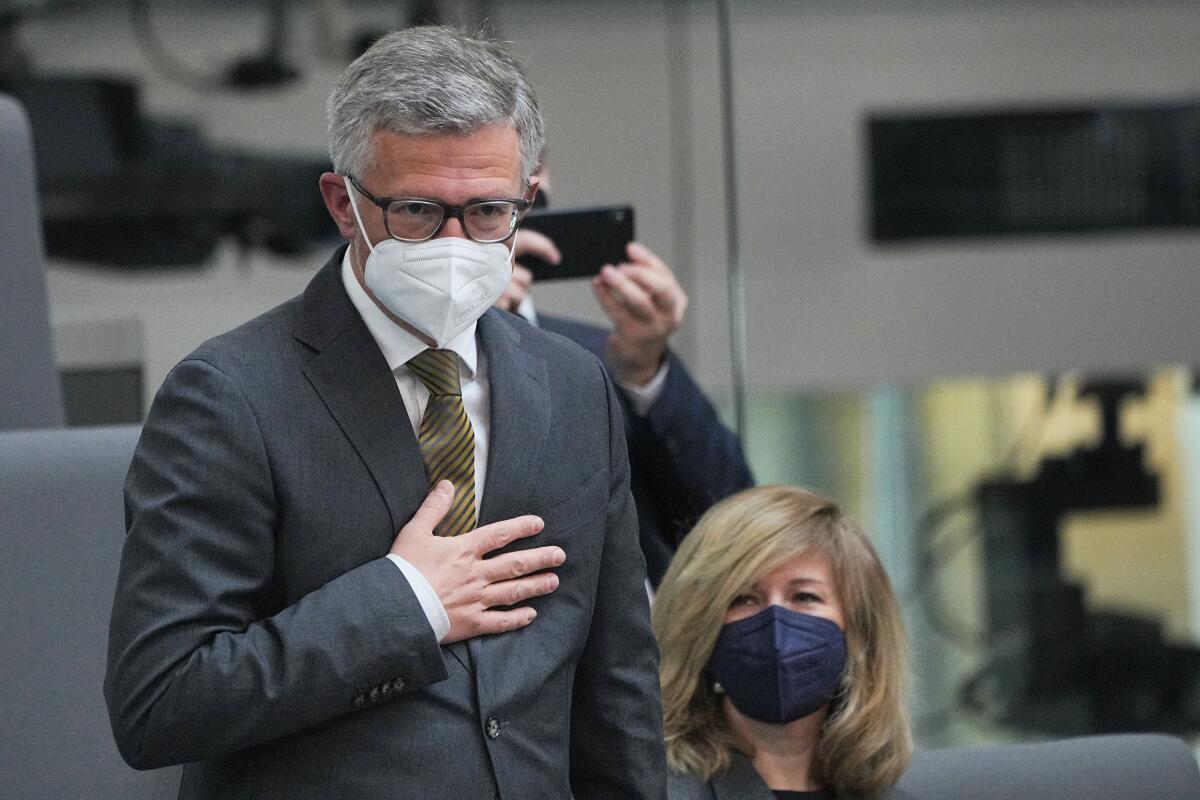
- Share via
BERLIN — Ukrainian Ambassador Andriy Melnyk appears to have a split personality. On German TV talk shows, he is composed and soft-spoken as he speaks impeccable German. Patiently, he explains why Ukraine deserves more weapons and why Germany should exert more pressure on Moscow to end its invasion.
On Twitter, however, he is far less diplomatic, reacting with wrath anytime he detects German hypocrisy toward Russia, such as when he received an invite to a Ukraine solidarity concert for last Sunday at Bellevue Palace, the residence of German President Frank-Walter Steinmeier.
“There are only Russian soloists performing, no Ukrainians,” he tweeted in capital letters. “In the midst of a war against civilians. This is an affront. Sorry, I will stay away!!”
The office of the president responded by expressing regrets that the ambassador would not attend. That, however, did not soothe Melnyk, 46.
“My dear God,” he replied, “why is it so hard for the German president to realize that as long as Russian bombs are falling on Ukrainian cities and thousands of civilians are being murdered day and night, we Ukrainians don’t have any stomach for ‘great Russian culture.’”
Biden’s order to release of 1 million barrels of oil a day from U.S. reserve is a bid to control prices that have spiked after sanctions on Russia.
The exchange, Melnyk reflects, epitomizes the duality of attitudes that some leading German officials continue to maintain toward Moscow as its troops and missiles pummel Ukraine more than a month after Russian President Vladimir Putin launched his unprovoked war.
While Germany has acted in concert with the U.S. and its other fellow NATO members in providing arms to Ukraine and scaling back most trade with Russia, Melnyk suggests that there is more than missing tact and sensitivity when it comes to leaders such as Steinmeier.
There remains, he suspects, a thinly disguised affection for Russia that has not, or cannot, be overcome.
“The president of Germany is not ready to admit any of his huge personal responsibility for the failure of Berlin’s Russia policy mistake,” he said in an interview. “Even in times of such a war he wants to build new bridges with Russia. It clearly sends a clandestine signal to Moscow: Once the war is over we are still here. We keep the flag flying. We will restore the German-Russian historic ties.”
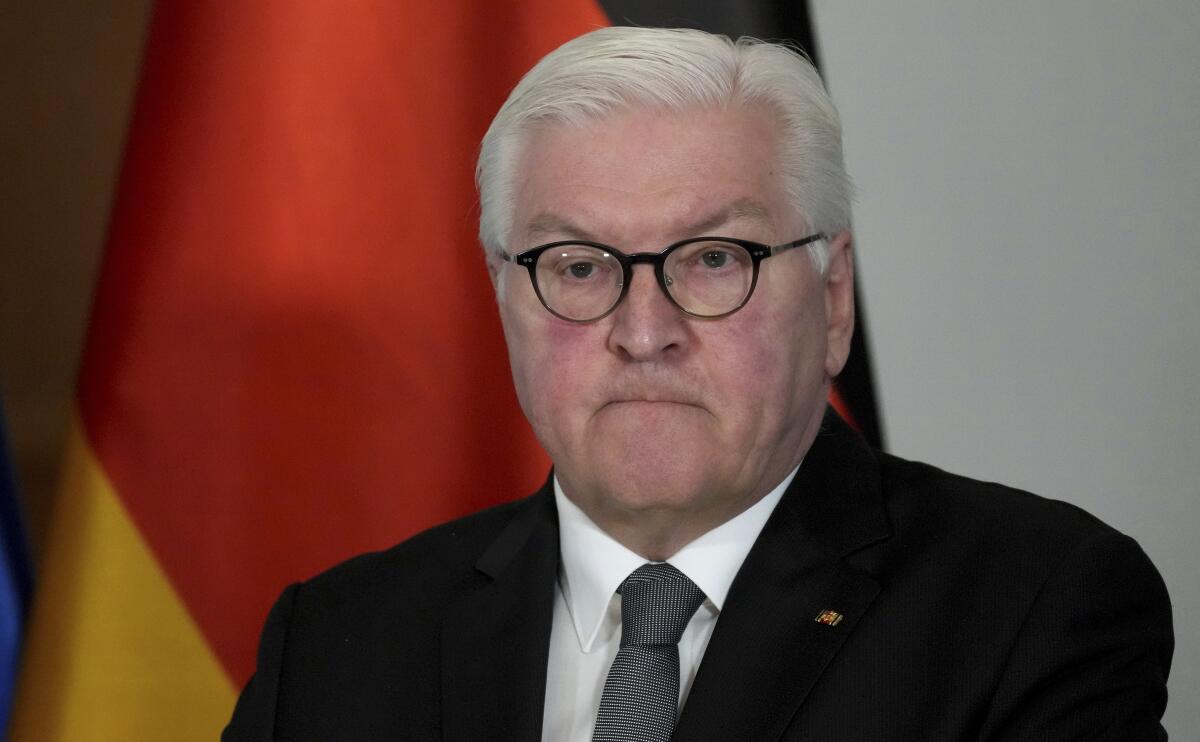
Steinmeier, twice a German foreign minister and a longtime confidant of former chancellor and Nord Stream 2 pipeline executive Gerhard Schröder, has for years been seen as one of the architects of Germany’s cozy relations with Russia. He brokered a peace agreement, dubbed the “Steinmeier formula” between Russia and Ukraine’s former Moscow-friendly administration after Putin’s 2014 invasion of Crimea and of the eastern Ukrainian Donbas region.
For years Steinmeier could be sure that his soft stance on Russia had the support of the German political establishment. The mantra “No peace in Europe without Russia’’ was a predominant guideline of Berlin’s foreign policy.
Following the line meant frequently looking the other way at Putin’s suppression of political opponents and the media, and his support of Syrian President Bashar Assad in bombing his own cities with Russian air assistance.
It was not until 2020 when then-Chancellor Angela Merkel turned a corner, helping Putin critic Alexei Navalny receive medical assistance in Germany after his presumed poisoning by Russian intelligence agents.
Marie-Agnes Strack-Zimmermann, a high-profile politician of the liberal party FDP that is part of the ruling coalition, summed up Germany’s past policies in bitter words.
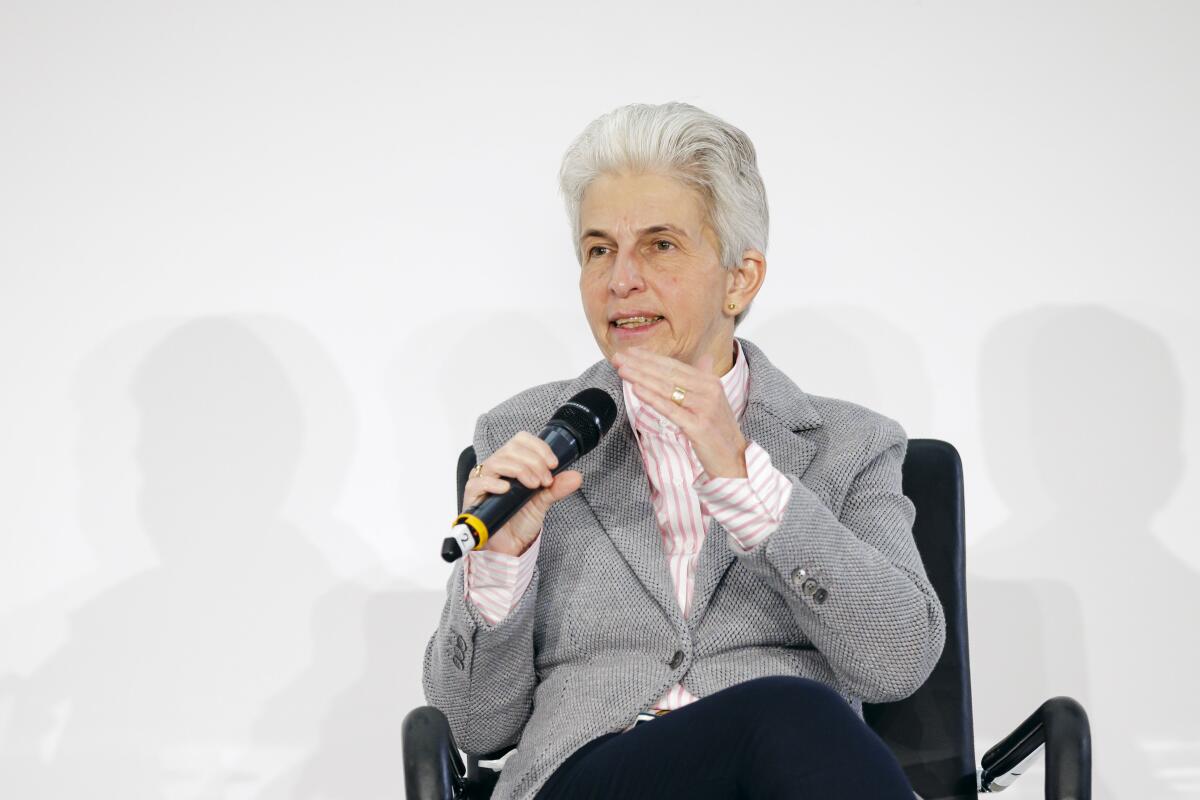
Putin’s war was “a very harsh awakening for Europe and especially for us,” she said in an interview with the German news agency dpa. “I think appeasement, which is a policy of constant tolerance of destructive power politics, has completely failed.”
After Putin launched his invasion of Ukraine in late February, German Chancellor Olaf Scholz announced that Berlin would finally send weapons to Ukraine and prop up his own underfunded military.
German weapons have since begun slowly trickling in, and on Thursday, a Ukrainian delegation spearheaded by former boxing world champion Wladimir Klitschko, the brother of Kyiv’s mayor, arrived in Berlin to negotiate more deliveries.
Bolstering the German army also seems slow going. Behind the scenes there is a fight brewing over the wording of a law for a 100-billion euro expenditure. Rather than spending the money as initially promised on the army, the government now wants the funds to generally “strengthen alliance and defense capabilities.” Ongoing haggling is indicative that the Russia-friendly political wing, as well as the German peace movement that makes up influential parts of the governing Social Democrats and Greens, may not stay silent.
A recent survey by the Körber-Foundation, a nonprofit organization based in Hamburg, seems to back up the sentiment. Although Germany’s foreign policy has 67% support, 76% of the public still seeks more independence from U.S. interests. Even now, 14% of Germans consider close relations with Russia to be more important than with the U.S.
A cornerstone of German’s tight relationship with Russia has been its reliance on Russian energy sources — more than half of the natural gas consumed in Germany comes via Russia.
Now this dependence has turned into a significant disadvantage. While shutting off a new Nord Stream pipeline, Russia still relies on gas deliveries via other sources, including the Nord Stream 1 pipeline, which also supplies several other European nations.
In a new twist on the gas issue, Putin threatened to turn off the gas supply to countries deemed “unfriendly” such as Germany if they did not pay in rubles. But on Thursday, he said that such countries must open special accounts at Gazprombank to pay for Russian gas and the bank would then buy rubles on behalf of the buyers to transfer payments in Russian currency to another special account.
The Ukrainian ambassador remains less than optimistic about the future.
“On the societal level, people better understand that this war may affect them. And they are more than ready to help,” he said.
Indeed, in the last month, German individuals and private institutions have donated several hundred million euros for Ukraine; volunteers collected food, clothes and medicines, hired buses and drove to the Polish-Ukrainian border to bring refugees to safety in Germany.
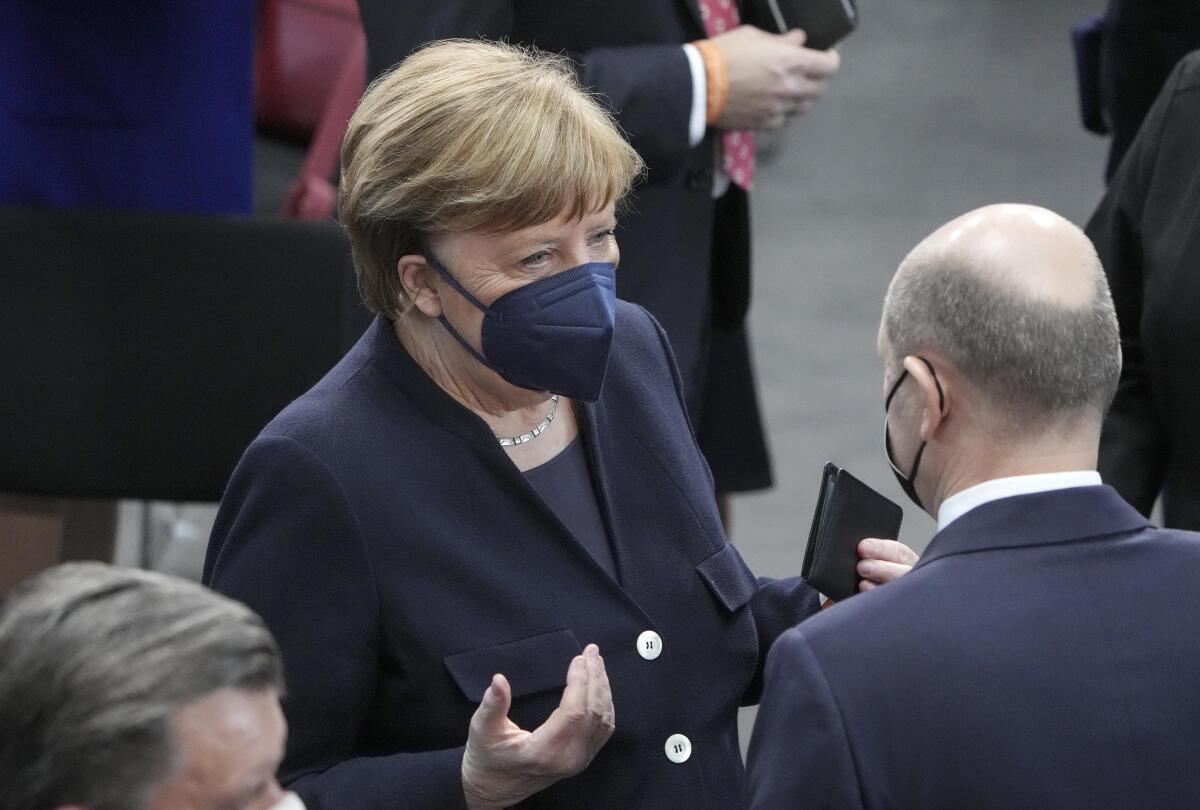
“But as the first shock subsides, politics has again become sluggish,” Melnyk contends.
The ambassador, probably one of the most disliked men in Berlin diplomatic circles because of his blunt style, wants Germans to look in the mirror.
“Ukraine needs much more weapons from Germany, has to increase the economic pressure on Russia and sanctions have to be considerably increased,” he said. “Instead, it seems to me as if many in the government still think that Russia will win this war — and that it does not pay off to take too much of a stand in favor of Ukraine.”
In another tweet, he posted an image of Ukrainian kids huddled together in a makeshift bomb shelter. The caption read, “Dear Federal Government! This is how millions of Ukrainian children sleep. In basements. Under Russian missile fire. You can end this horror immediately by an import ban on gas, oil, coal, metals and other raw materials. Have a good night.”
Ziener is a special correspondent.
More to Read
Sign up for Essential California
The most important California stories and recommendations in your inbox every morning.
You may occasionally receive promotional content from the Los Angeles Times.
